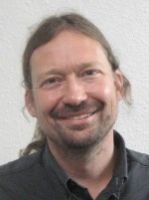

A University of Sussex professor has helped draw up new guidance to aid European policymakers in making better informed decisions on issues of complex scientific evidence.
Professor Andy Stirling has contributed to the new report Making Sense of Science by Science Advice for Policy by European Advisors (SAPEA) which brings together outstanding expertise in engineering, humanities, medicine, natural and social sciences from over 100 academies, young academies and learned societies across Europe.
Prof Stirling was one of 16 working group members drawn from universities based in 12 countries across Europe to create the report providing independent scientific advice to European Commissioners to support their decision-making.
The report highlights the fact that many of the world's most pressing problems are also incredibly complex, including climate change, environmental pollution, economic crises and the digital transformation of societies, while the scientific knowledge around these areas can often be uncertain or contested.
Prof Stirling, Professor of Science & Technology Policy in the university's Science Policy Research Unit (SPRU), said: "The history of regulation (eg: asbestos, benzene, DDT, phthalidomide, CFCs, BSE) shows ordinary risk assessment can be tightly blinkered. It tends to exclude uncertainties that are not readily quantified using probabilities.
"Resisting strong industry pressures to keep regulation weak in this way, the 'precautionary principle' helps address this. It extends attention to deeper ambiguities, uncertainties and gaps in knowledge that are otherwise easily left out.
"With emerging new technologies like gene editing, synthetic biology, artificial intelligence and climate geoengineering, this enables crucial improvements to both rigour and accountability. In all these areas, precaution is not about slowing technology down or demanding 'zero risk'. It is about society steering innovation under uncertainty –in directions that favour not just private interests, but wider social wellbeing."
In a foreword to the report, Professor Sierd Cloetingh, Chair of the SAPEA Board 2018-2019, said: "In the twenty-first century, we face extreme global challenges like climate change, population growth and widespread pollution, as well as contending with major change brought about by technological advances. As a result, science advice has consistently come to be regarded as a vital element in the overall evidence considered by policymakers.
"At the same time, policymakers are striving to make sense of scientific evidence that is most certainly complex, multifaceted and, quite often, at the very limits of what is known scientifically. It is against this backdrop that the European Group of Chief Scientific Advisers (GCSA) decided to address the question of how to provide good science advice to European Commission policymakers.
"In drafting this report, SAPEA formed an outstanding working group of European experts from a variety of disciplines, backgrounds and countries. All were determined to bring together the many schools of thought on the topic, as well as their extensive practical experience in science advice, and to reach a position of consensus.
"Their success in this endeavour is reflected in this Evidence Review Report, which highlights
the unique role played by science in effective policymaking. We are confident that the report and its summaries will be useful to policymakers in Europe, and beyond."
To read an exceutive summary of the report visit here or for the full report visit here.






